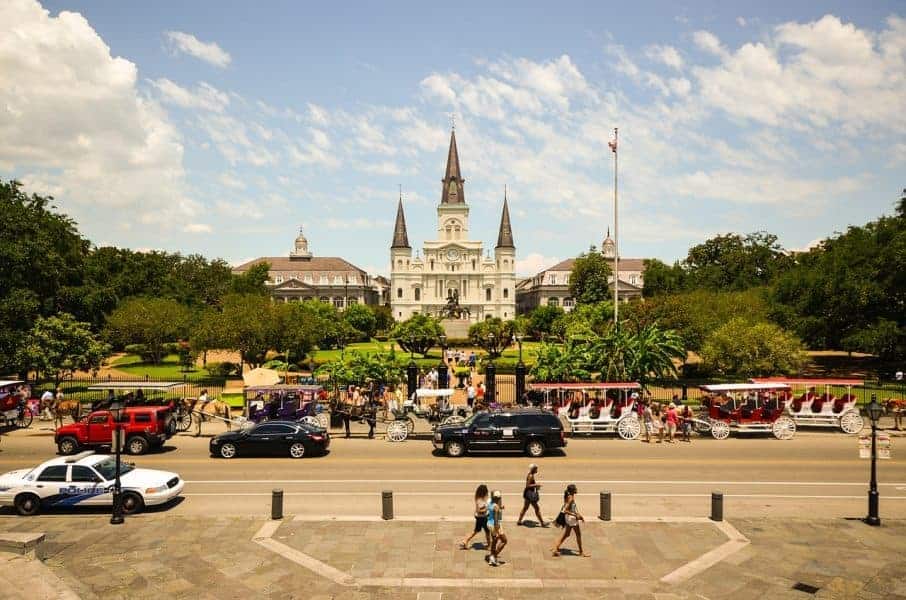Hopeful Ways to Cope With the Grief Affecting Many of us During the Holidays
There are many types of grief that people, and children, deal with over the holiday season.
There are children in the foster care system whose parents are alive, but they won’t see them on Christmas.
Some family members do not speak to one another because of years of abuse and the damage to one’s mental health.
Grief, caused by death, is a reality for too many people, worsening during the holidays.
There are parents whose children have passed away and young children whose parents have died.
Some siblings will muddle through the holidays without their built-in friends.
Spouses face their first holiday without someone who has been by their side for years.
Each situation and each person’s grief is unique, but you are not alone if you are grieving this holiday season.
Dealing with the ghosts of Christmas trauma
I didn’t have a conventional childhood.
My mother and father divorced when I was 5.
He stayed in NY, and I didn’t communicate with him until I was 18.
Thirteen Christmases went by without him, and while he wasn’t dead, grief accompanied each of them.
My mother was an addict who couldn’t care for us or remain on the right side of the law.
My sister and I lived with my grandparents, and my mother rarely appeared on Christmas Day.
She would promise to be there and then not show up.
Children living in situations like this process trauma, and anything can trigger sadness or behaviors.
They are not always appreciative of the attempts by their caregivers to make the holidays happy.
It is a terrible catch-22.
On the one hand, they might be pleased that things are better than ever.
They are warm, safe, well-fed, and have presents for what might be the first time.
That, by itself, brings up the grief, guilt, and anger.
Why don’t their parents love them enough to take care of them?
Who do these strangers think they are to come in and try to show their parents up?
They might come from an abusive family with money, and their foster family cannot meet their expectations.
Children are resilient and might view this as being in a worse position, even though they suffered abuse from their parents.
As small children, we make excuses for our terrible parents because it makes coping easier.
It is a confusing and unpredictable time for everyone involved.
Tish Gallegos offers several tips if this is a situation you are working through this holiday season.
With holiday traditions, she says that it is best to tell the foster child about your family’s traditions and encourage the child to share their traditions with you.
She also recommends including the birth parents if that is possible.
Also, keep things simple and watch the child for sadness and regression.
Coping with death around the holidays
Sadly, anytime someone you love dies when those deaths happen around the holidays, it’s hard to remember why you are supposed to be happy.
My mom entered the witness protection program shortly after my eighth-grade Christmas.
I found her and moved in with her after I graduated high school at the end of July.
I was excited to celebrate my birthday with her in a few days—Halloween, Thanksgiving, and Christmas.
We never made it to Christmas.
On December 3, 2001, she drove her work van off the side of a lonely Montana highway.
She wasn’t wearing a seat belt, and the van rolled over her, crushing her waist.
We were told she died instantly.
That Christmas season consisted of two funerals, one in Montana and one in Florida, yet another traumatic fight with my grandma, and so much grief.
A few years later, my twenty-year-old brother-in-law committed suicide on New Year’s Eve.
My mother-in-law, and my husband, have not ushered in the New Year with glee at any point during the last 15 years.
My father, who I reunited with after my mother’s death, didn’t die around the holidays.
Neither did my grandpa, who raised me.
Their deaths happened in May and August, but they are still missing from the holiday festivities.
Those first holidays without them were so strange.
Death is sad, and grief comes in waves, but when the anniversary of a loved one’s death coincides with a holiday, those holidays will never be the same.
How are you supposed to carry on in any way that feels normal with a gaping wound in your soul?
Litsa Williams offers us 64 great tips for coping with grief around the holidays.
My favorites are:
- Include one of your loved one’s favorite dishes in your holiday meal.
- Go to a grief group. When everyone looks so gosh-darn filled with holiday cheer, sometimes it helps to talk with others who are struggling.
- Let your perfectionism go. If you always have the perfect tree, wrapped gifts, and table, accept that this year may not be perfect, and that is a-okay. I know this is easier said than done for you type-As, but try it.
- If you are stressed about making the holiday dinner, ask someone else to cook or buy dinner this year.
She offers many helpful ways to survive the grief brought on by the holidays, whether that is celebrating a loved one’s memory or not celebrating at all.
Another one of her suggestions is to seek a counselor if you would like someone to talk to.
I recommend this, and if you are worried about finding one, then check out this article.
The grief of missing those who have not died
You might also consider finding a therapist if you are dealing with grief because you can not spend time with a loved one during the holidays for the sake of your mental health.
This is another facet of suffering that is hard to explain to someone who hasn’t been there.
This person is alive, and many people think it is your choice if you aren’t speaking to a family member, and you should be at peace with that.
It just isn’t that easy.
I have lost my birth mother and father because of unexpected deaths.
The father who raised me died from Alzheimer’s.
I watched him suffer, and I wished each day would be his last because it was so unbearable to watch this man wither away.
My grandmother is the only parental figure I have left.
She and I have not spoken in nearly a year; it was always contentious before that.
With the help of therapy, I realized you do not have to put your mental health in danger simply because someone is family.
When another human subjects you to years of physical, mental, and emotional abuse and is unwilling to acknowledge their behavior, you are not required to continue to try.
But that comes with its unique form of grief.
I remember the fun holiday moments, but then I remember that time she struck me.
The smack was so hard that I fell into the dresser and cut my eye on Christmas Day.
I remember all the fun we had playing cards and games, the lavish holiday dinners she would cook, and how she would painstakingly wrap the presents and decorate the tree.
It is hard to forget that she is the mother who never left me and was the only mother there on Christmas.
Mattie Quinn offers some perspective on these emotions and how to handle this grief during the holidays.
She reminds us that our feelings are valid, as is our instinct to protect ourselves.
Quinn recommends finding a coping mechanism, like journaling or writing a letter (you don’t have to send it) to the family member you are estranged from.
A lot of her advice is spot on if you are the family member that pulled away from the relationship.
I recognize that the other family member, in my case, my grandmother, is also experiencing grief.
She doesn’t understand what she did or why she is alone on the holidays.
I know she shares many of my happy memories, but she denies any of the sad ones that happened.
This is her way of coping with all her trauma.
I also know that her narcissistic mind won’t let her view it in a light where she was the villain.
Therefore, we don’t speak, not so much because of the past, but because any attempt at communicating is futile.
Final thoughts for the holiday season
If you are experiencing grief this holiday season, please know you aren’t alone.
Reach out to a loved one or a counselor if you feel you need someone to talk to.
If you have lost someone recently, and this is your first holiday without them, it is ok to feel every emotion you feel.
It doesn’t get easier, but time has a way of changing your perspective.
If you feel comfortable sharing your story of grief, please do in the comments.
It might help someone else make it through this holiday season.
Stay safe and stay well.












Julia D Huffner
October 28, 2022 at 12:38 PM
I love how you used your own grief/trauma to help others cope with their grief.